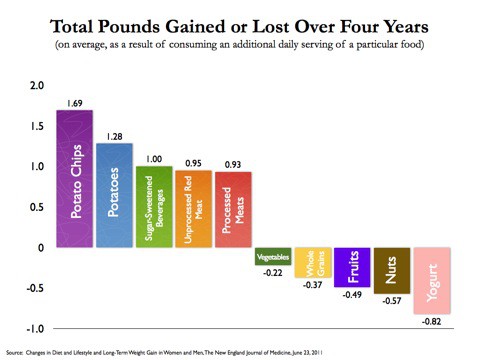
The New England Journal of Medicine just released a new study that proves all calories are not created equal. For a long time there’s been a big push to get people to just eat less since it was believed that portion sizes were the main culprit in our obesity epidemic. Now there’s proof that long-term weight gain is also associated with the quality of calories, not just portion sizes.
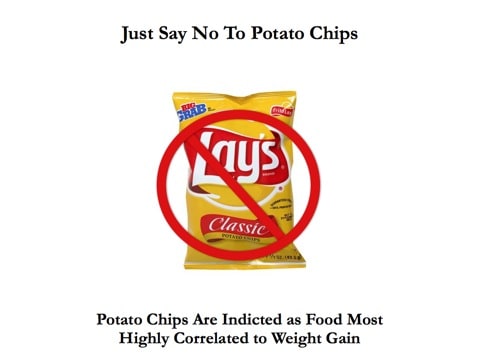
Potato Chips were demonstrated to be a food that was most highly correlated with weight gain, closely followed by potatoes, sugar-sweetened beverage like soda, and meats. In contrast, foods like yogurt, nuts, whole grains, and vegetables tended to lower weight.
Beyond just indicating foods that are more likely to be related to weight gain or loss, this study also showed that physical activity levels, watching TV watching, and sleep duration can impact weight over time. When added together, the cumulative impact of unhealthy habits can be huge.
Yes, the recipe to fix our obesity problem is quite intuitive: eat right, get sleep, be active, and avoid sedentary activities like watching TV. Food companies are right — the obesity problem isn’t just about the food we eat. That said, unhealthy foods are a clear part of the problem that can’t be ignored or whitewashed any longer. The food industry needs to step up and take responsibility for its share of the problem. But we can also do our part too. Exercising is an essential part of living a healthier life. There are no limitations on the activity you look to taking up and where you live. At least you’ll be doing something to improve your health.
Food Policy decisions need to be changed to reflect better, healthier eating. The federal government needs to use information to inform better packaging regulations that give consumers clear nutritional guidance. As I mentioned in my blog article entitled “Here We Go Again …” , we seriously need to consider “traffic light” coded packaging that clearly spells out to consumers that items like chips and soda should be minimized in one’s diet. And of course, we need to finally get to work in our schools and demand better, higher quality food – another huge policy debate that the powerful food lobby has successfully fought over the past 20+ years.
None of the answers are rocket science, but when you put them in the context of fighting processed food companies and factory farms, the battle isn’t going to be easy.
For more information about this research study, check out the video below or visit The New England Journal of Medicine.
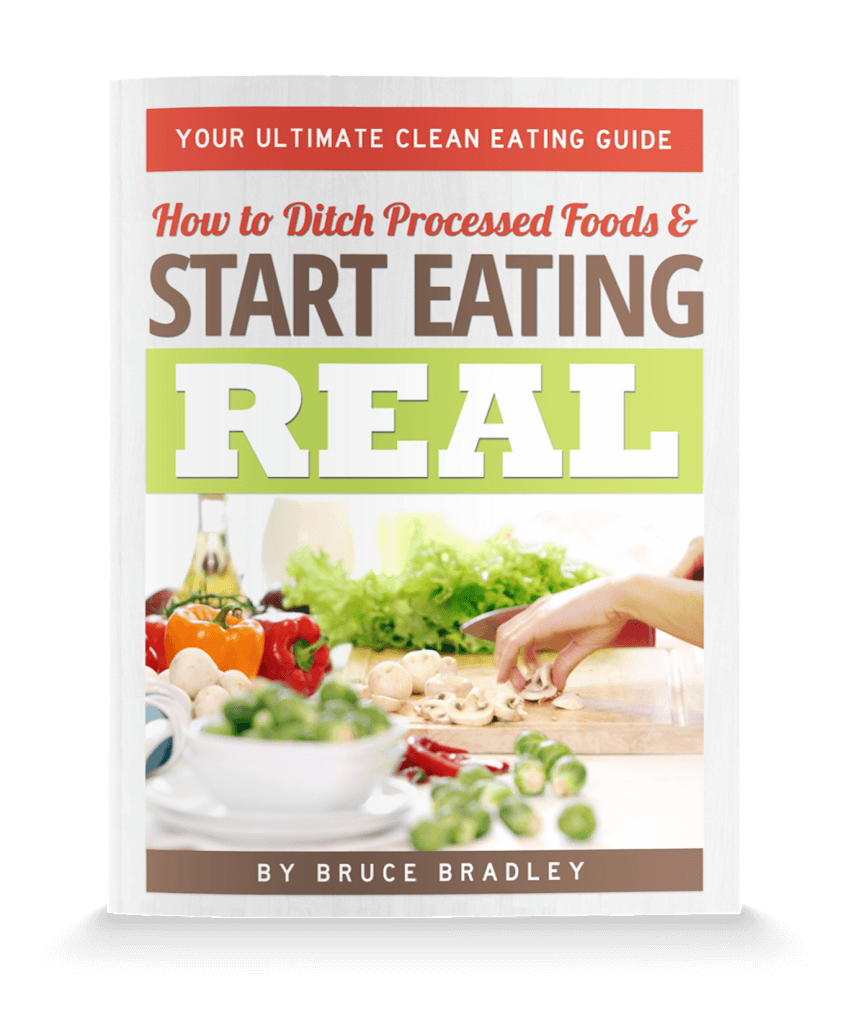
GET MY FREE BOOK NOW!
End the confusion! Learn what’s really in your food and how to take simple steps toward eating healthier!
EAT HEALTHIER TONIGHT!
If you enjoyed this article or recipe may I ask you a favor? Please share it with a friend. Why? Because together we can make a difference and help each other live happier and healthier lives. Thank you!
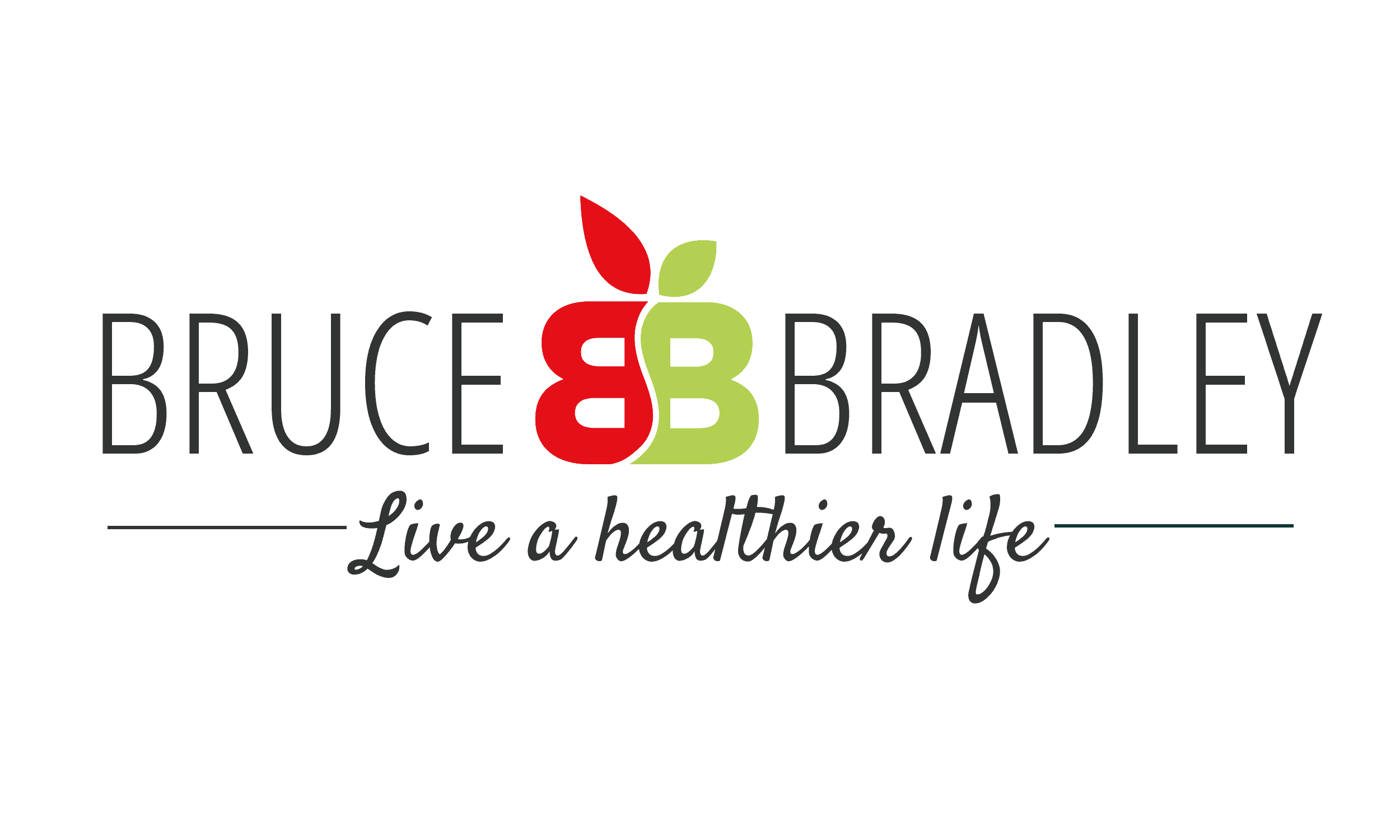



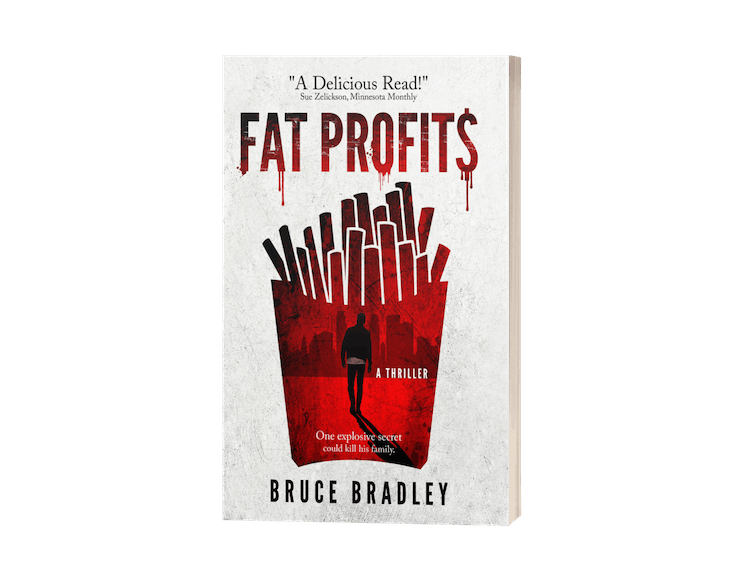
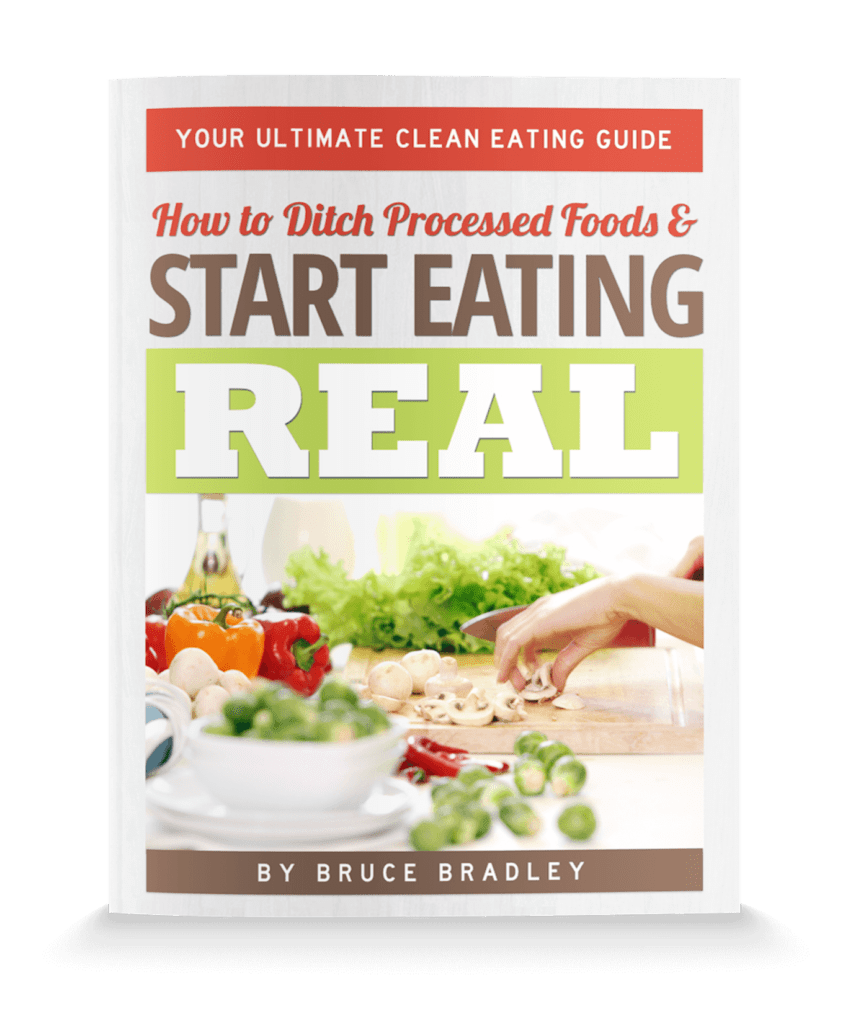

2 Responses
I listened to the video on how the studies were conducted but I wonder how those potatoes were served. I have lost weight eating tons of potatoes – white ones, to boot. By eating them plain, with salt and pepper, or topped with simple things like steamed vegetables. I suspect that the fact that I eat potatoes along with other vegetables and fruits, eaten whole rather than processed, makes them less of a problem for me.
Thanks for your comment Judy. You’re right. Potatoes plain really aren’t bad for you. The sad truth is probably 95% or more of the potatoes we eat are in the form of french fries or potato chips … both horrifically salt and fat laden and can have real LT health consequences as this study shows.
One little known fact is potatoes when eaten after they’ve cooled also have more of what is called “resistant starch.” These starches are harder to digest which yields great benefits as well as reduce caloric impact. So if you’re enjoying your spuds cold or cool, that may be another reason why it’s working for you.